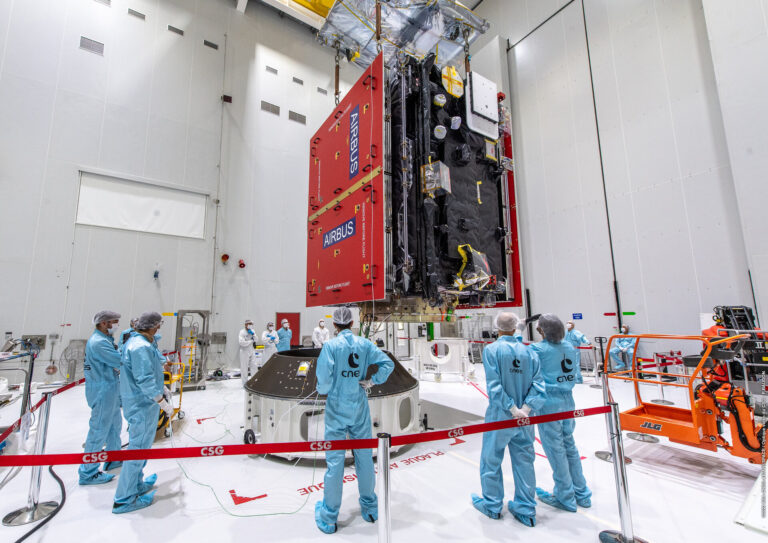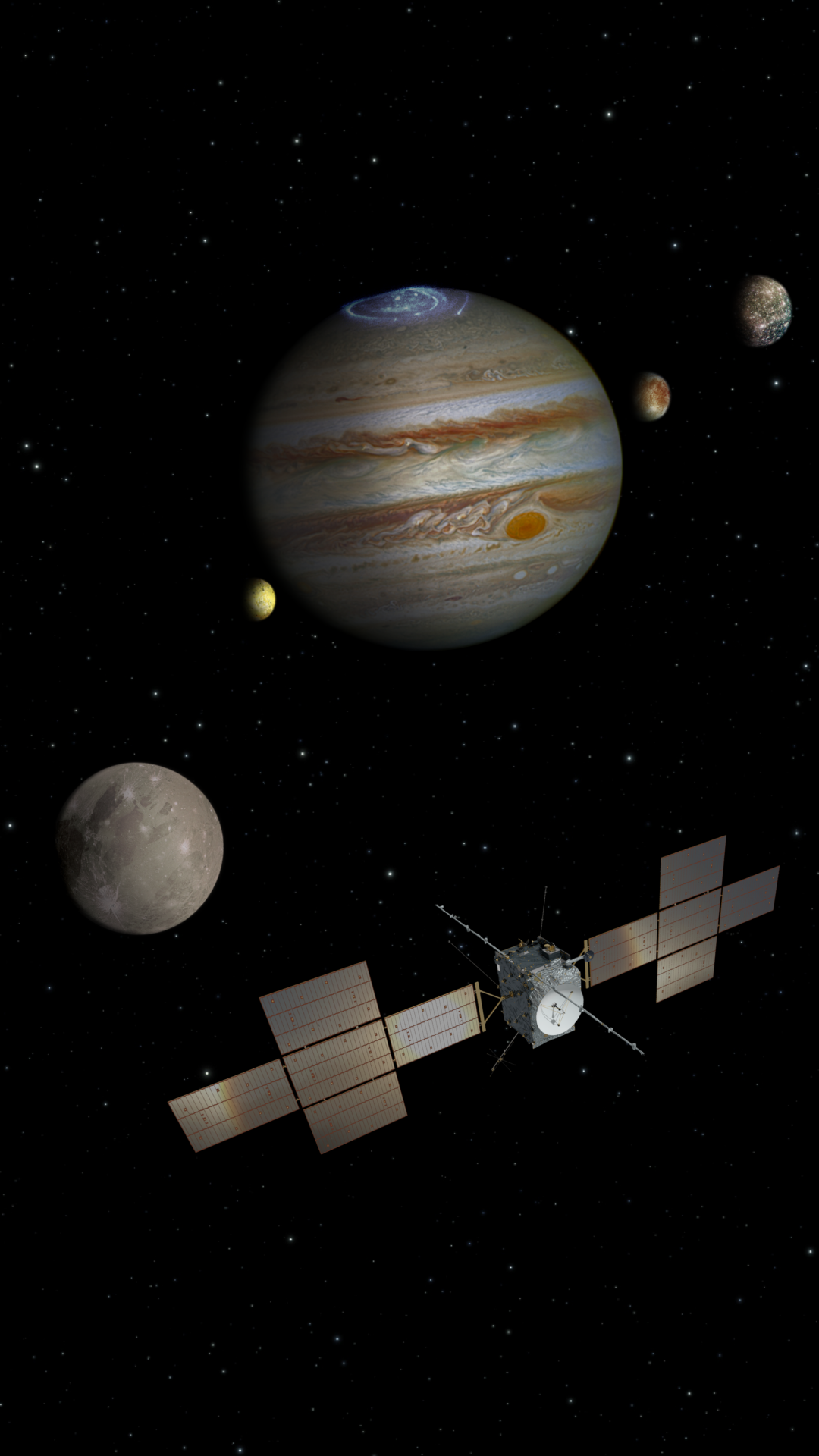The historic JUICE (JUpiter ICy moons Explorer) mission to the planet Jupiter is scheduled by the European Space Agency to blast into orbit today (April 13), and one of its critical components comes out of Israeli space research.
Upon reaching Jupiter’s orbit by 2031, JUICE will embark on a four-year mission to investigate three of Jupiter’s moons – Callisto, Europa and Ganymede – as well as the composition of Jupiter’s atmosphere.
The Israel Space Agency and the Innovation, Science and Technology Ministry funded the development of JUICE’s ultra-stable oscillator (USO) clock system enabling the spacecraft to perform a series of experiments and to communicate with Earth.
Customized at the Weizmann Institute of Science under Prof. Yohai Kaspi and Dr. Eli Galanti, and built by Israeli company AccuBeat — one of five atomic clock manufacturers in the world — it is said to be the most accurate space oscillator in the world.
Kaspi and Galanti and their teams at Weizmann began planning the spacecraft’s trajectory in 2013 to enable gravitational measurements of Jupiter and its moons, to learn more about the planet’s atmosphere and how it is affected by gravity and the magnetic field there.

“This is not our first involvement in international space missions, but the fact that this is a completely Israeli creation makes it very special for us,” Kaspi said. “When I first approached the Israel Space Agency with the idea of building the oscillator, this seemed an impossible task, but the commitment of the agency and the synergy of industry and academia made this happen.”
AccuBeat CEO Benny Levy called his company’s development a “technological masterpiece on a global scale.”
“AccuBeat’s vast experience and knowledge helped the development of technology with unprecedented capabilities. We are proud and excited to be a part of a historic research project the results of which will lead to sensational discoveries in the world of science, space and humanity as a whole.”
Israel Space Agency Director-General Uri Oron added, “AccuBeat is an example of the outstanding engineering capabilities found in Israel. Without a doubt, the research conducted at the Weizmann Institute will constitute a key component in the mission’s research program and will continue to advance space research in Israel and position it among the global leaders in the field.”
The mission will also incorporate chips from Ramon.Space, which specializes in radiation-hardened processors.

















